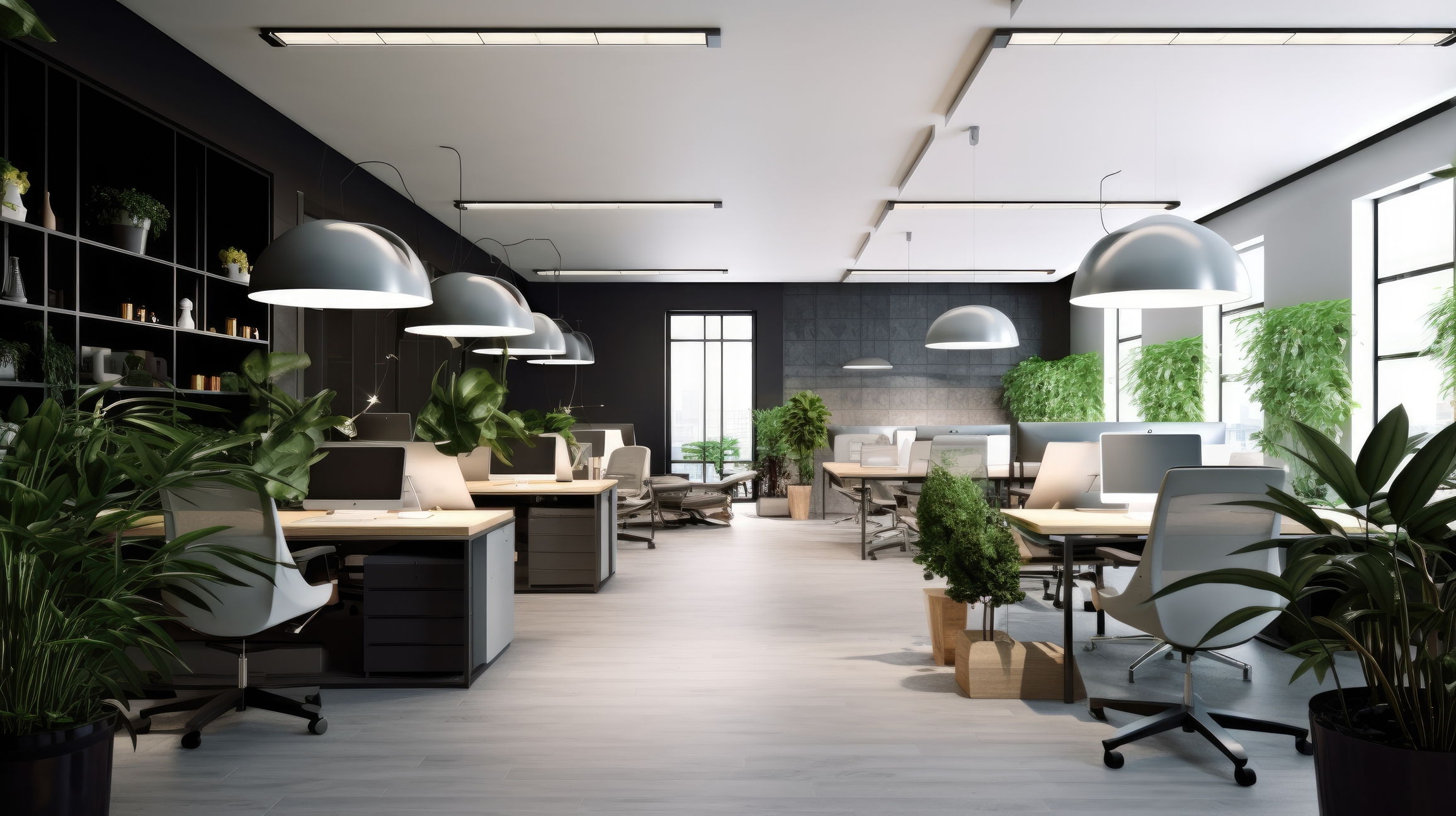
In modern corporate culture, employee workspaces are more than just places to perform tasks—they are environments that directly influence morale, creativity, and productivity. Research by Unispace shows that a harmonious workspace reduces stress, enhances mental health, and strengthens team connection.
Meanwhile, Justworks highlights that Feng Shui-inspired workplaces improve motivation and overall well-being. Universal elements such as lighting, greenery, air circulation, furniture, and color are not merely aesthetic choices—they reflect how a company values its people and brand identity.
According to the Journal of Environmental Psychology, workspaces designed based on Feng Shui principles can reduce stress by up to 25% and significantly enhance creativity.
Conversely, cramped or poorly lit environments lower performance. The Spruce emphasizes arranging desks in a “commanding position” to create a sense of safety and focus.
Clean, airy spaces filled with natural light and greenery elevate employees’ mental and physical well-being. For example, research from Texas A&M University found that offices with plants and flowers generated 15% more ideas.
A smooth energy flow (chi) promotes easy, natural communication among employees without feeling constrained, fostering collaboration and teamwork.
Desks should face the entrance (without being directly aligned with the door) to avoid disruptive energy. The back of the chair should be supported by a solid wall—never face a window or hallway—to enhance the sense of security.
Clutter creates stagnant energy and reduces focus. Encourage employees to keep their desks tidy daily as part of workspace hygiene.
Prioritize natural daylight. When unavailable, use soft white LED lighting to maintain yang energy. Avoid harsh fluorescent lighting, which causes fatigue and tension.
Small plants or nature-themed artwork introduce Wood energy (Mộc), promoting calm and rejuvenation. Balance all five Feng Shui elements (Metal – Wood – Water – Fire – Earth) to maintain harmony in energy flow.
Pathways between desks should be open and unobstructed, allowing chi to circulate freely and maintain vitality throughout the workspace.
Encourage employees to decorate with inspiring photos, books, or motivational objects. Light scents such as citrus or woody essential oils can enhance relaxation and focus.
Desks should not have their backs to walkways. If unavoidable, use a mirror to reflect the entrance. Low partitions are preferred—they maintain privacy without blocking energy flow.
Add greenery and Water elements (glass, soft lighting) to balance energy. Use rounded furniture to remove sharp angles, allowing energy to move smoothly and comfortably.
The Journal of Environmental Psychology found that uncluttered meeting rooms enhance creativity and positivity by up to 25%.
ComFeel (Texas A&M) reported that comfortable rooms improve meeting effectiveness by 35% and productivity by 25%.
WorkDesign Magazine identified that balancing natural elements—earth, water, and light—is key to improving health and morale.
Applying Feng Shui in employee areas yields tangible benefits beyond aesthetics—it directly improves operational efficiency and strengthens corporate culture.
First, Feng Shui optimizes spatial energy, creating a balanced and positive working environment. Elements like natural light, air circulation, and proper desk placement enhance focus, performance, and reduce stress.
Additionally, Feng Shui-inspired layouts foster communication, collaboration, and team spirit by aligning open-space designs with natural energy flow.
Over time, a harmonious workspace increases employee engagement, nurtures a positive culture, enhances retention, and lays the foundation for sustainable growth.
Beyond individual well-being, an organized Feng Shui strategy can become part of corporate HR policy—demonstrating a company’s commitment to physical and mental wellness.
Assess Current Conditions: Review lighting, pathways, desk placement, and clutter levels.
Create an Energy Map (Bagua): Apply it to staff areas to identify key zones.
Redesign Recommendations: Add greenery, natural light, and reorganize desks.
Employee Training: Educate teams on maintaining tidy desks and understanding the “commanding position.”
Monitor & Evaluate: Use employee satisfaction and productivity surveys before and after implementation.
Feng Shui is not merely a “traditional belief” but a research-backed environmental psychology approach that directly impacts employee well-being, productivity, and creativity.
Through thoughtful design—including desk positioning, natural lighting, greenery, and balanced interiors—businesses can cultivate a high-performance, sustainable workspace.
If you wish for IDD Decor to assist in implementing Feng Shui principles, conducting spatial assessments, redesigning layouts, and measuring impact, our team is ready with advanced international methodologies suited for global businesses in Vietnam.
IDD Decor – Office Interior Design – Behind the door awaits the journey to success.
📍 Address: Doxaco Building, 307B Nguyen Van Troi Street, Tan Son Hoa Ward (formerly Ward 1, Tan Binh District), Ho Chi Minh City
📞 Hotline: 0896 640 986
🌐 Website: idddecor.com
🔗 LinkedIn: IDD Decor Vietnam